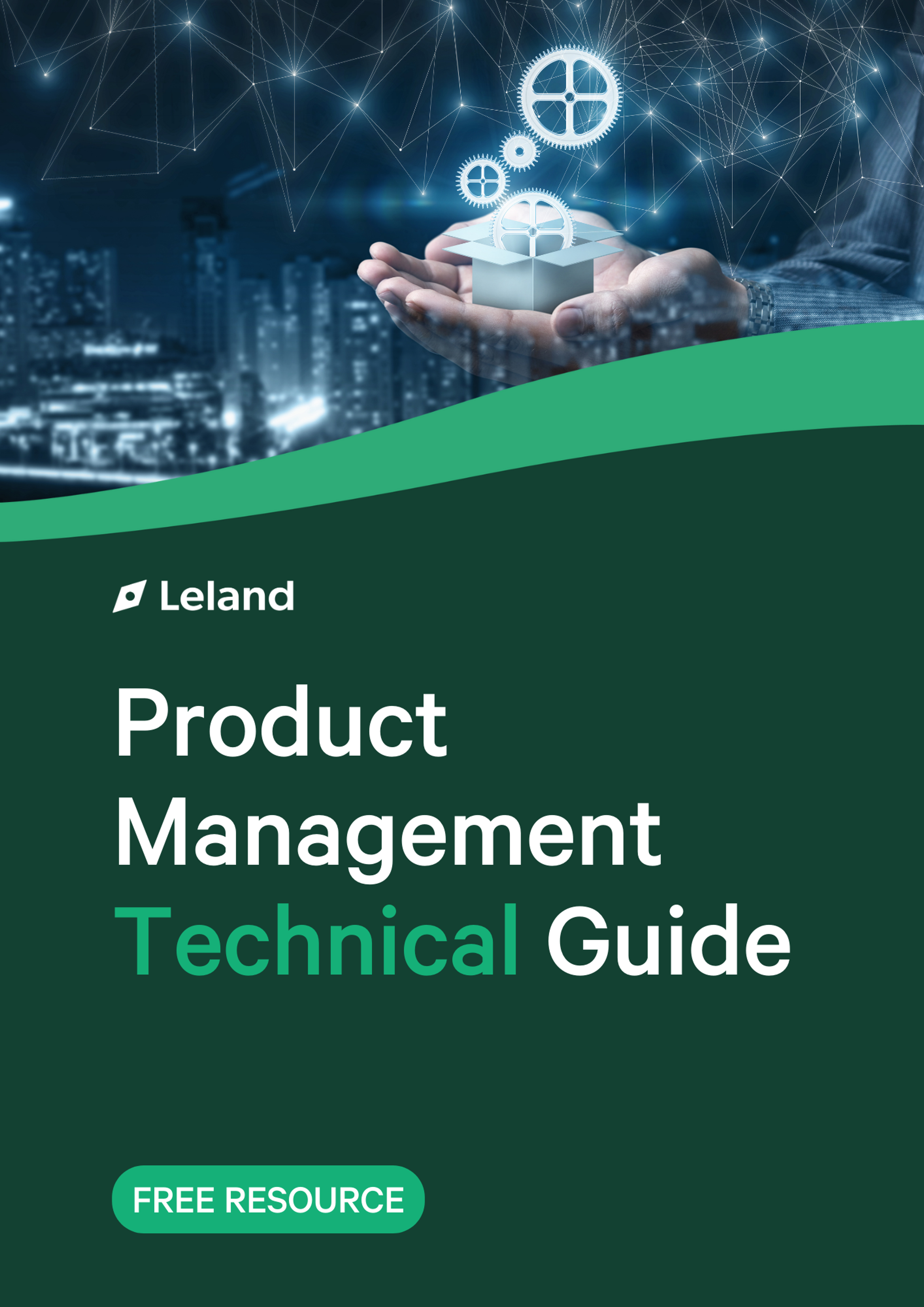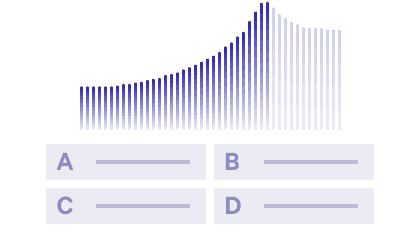How to Get Into the Google APM Program (2026)
Discover the steps to successfully apply for the Google APM Program in 2026. Learn how to stand out and boost your chances of securing a spot in this competitive role.
Posted January 27, 2026

Join a free event
Learn from top coaches and industry experts in live, interactive sessions you can join for free.
Table of Contents
Breaking into Google careers, especially on the product team, is no small feat. The Google Associate Product Manager (APM) program is one of the most competitive early-career roles in tech, known for its intense competition, fast career growth, and alumni who go on to become senior PMs, founders, and VCs. To stand out, you’ll need more than a polished resume. You’ll need to show real product thinking, communicate technical concepts clearly, and navigate a rigorous interview process that tests everything from execution to leadership to user empathy.
This guide breaks down exactly how to do that, from application timelines and interview prep to insider tips from coaches and APM alumni who've been through it.
What is the Google APM Program?
The Google APM (Associate Product Manager) program is a two-year rotational program that provides recent graduates and early-career professionals with the opportunity to learn from experienced product managers at Google. As an APM, you'll work on real products, gain hands-on experience, and develop the skills you need to become a successful product manager. The Google APM application is typically open in the winter.

Product Management Technical Guide
Download our free guide to learn everything you need to know about technical skills for product management.
Who is eligible to apply?
To be eligible for the program, you'll need to have a bachelor's degree in a technical area such as computer science, engineering, or a related field. You should also be able to demonstrate strong analytical and problem-solving skills as well as excellent communication and collaboration abilities. These requirements are designed to ensure that APMs have the traits necessary to succeed in the program and as product managers.
The Google APM Program: Application Overview (2025–2026)
The Google Associate Product Manager (APM) Program is a highly competitive, rotational early‑career role designed to train future product leaders through hands‑on experience and mentorship within Google. For the 2026 start, applications for the full‑time APM role are officially listed as opening on September 30, 2025 and closing on October 28, 2025, with successful candidates expected to begin in cohort tracks that start between April and August 2026; applicants must complete their submissions by the deadline on October 28, 2025.
What Are APM Programs?
First, it's important to understand what APM programs are and what they entail. These programs almost always target those who are new to the world of product management, especially recent graduates. The field in general involves overseeing the development and lifecycle of a product, from ideation to market research, design, development, and launch. APMs typically support more senior product managers in conducting research, gathering feedback, and defining product requirements. These programs are great for receiving on-the-job training and mentorship.
Read: The 25 Best Entry-Level Associate Product Management (APM) Programs
Application Steps
If you meet the eligibility requirements, the next step is to apply to the program. When you apply, you'll need to submit a resume, transcripts, and a cover letter. In your cover letter, be sure to highlight your relevant experience and skills, as well as your passion for product management.
Once you've submitted your application, the next step is to pass the initial screening process. This typically involves a phone call with a recruiter or current Google Product Manager. If you pass the initial screening, you'll be invited to complete a written assessment and participate in the next round of interviews.
During the on-site/formal virtual interviews, you'll be evaluated on your technical skills, problem-solving abilities, and communication skills. You'll also be asked to demonstrate your knowledge of product management and your passion for the field. Be prepared to discuss your experience, interests, and goals, and be sure to show enthusiasm and excitement for the APM program.
If you're successful in the on-site interviews, you'll be offered a spot in the APM program. Congratulations! The next step is to accept the offer and start your journey as an APM. As an APM, you'll work on real products, learn from experienced product managers, and develop the skills you need to become a successful PM.
Tips for the Google APM Program Application
On its official page for the APM program, Google offers a number of tips. They are: show empathy, communicate effectively, improve and iterate, manage your time, practice, and have fun. Here are a few additional ways that you can stand out during the application and interview process:
- Understand Google as a company and its product. Your research for every product management interview should be tailored to that company. You’re applying to work directly on their product, and you should understand what that entails.
- Showcase experience that is relevant to the job – Many people who apply to this program won’t have explicit product management experience; however, you can still show the development of relevant skills in other roles. For example, did you work on a startup or start your own company? That experience will directly benefit you in PM positions.
- Reach out to current or former employees – The best way to learn about what a job entails or what a company is like is to speak to someone who’s actually been there. Network with Google employees to learn about what it’s like to be a Google APM. This will help you demonstrate real enthusiasm for the opportunity.
- Use data to support your points – Not only will this show that you understand the importance of data in product management, it will also make your answers more convincing.
- Ask thoughtful questions – Remember, when you’re interviewing, you’re simulating what it would actually be like to work with you. As an APM, you will be working closely with a team of peers to make impactful decisions. Don’t be afraid to collaborate and challenge existing assumptions.
50+ Sample Product Management Interview Questions
Google-Specific Questions
Product Sense
- How would you improve the user experience of Google Maps for frequent travelers who want to discover local attractions and activities?
- YouTube is facing concerns about ad placements next to controversial content. As an APM, what strategies would you propose to ensure brand safety for advertisers while maintaining a positive experience for content creators?
- YouTube is facing concerns about ad placements next to controversial content. As an APM, what strategies would you propose to ensure brand safety for advertisers while maintaining a positive experience for content creators?
- With the rise of Internet of Things (IoT) devices, how would you expand the capabilities of Google Assistant to better integrate with and control various smart home devices?
- Google's search algorithm is a core part of its business. How would you approach launching a major update to the search algorithm to ensure that search results remain relevant and reliable while minimizing disruptions for users and businesses that rely on search traffic?
Execution
- Tell me about a time when you had to manage a complex project with multiple stakeholders. How did you ensure effective execution and communication?
- Google operates at a massive scale. How would you approach the execution of a project that needs to handle millions of users or data points? What challenges might arise?
- Describe a situation where you encountered unexpected roadblocks during project execution. How did you adapt your strategy to overcome these challenges?
- Google often launches products with a "beta" phase. How would you approach the execution of a project during its beta release, considering user feedback and iterative improvements?
- Can you give an example of a project where you had to prioritize tasks and manage time effectively to meet tight deadlines? How did you ensure the quality of the work didn't suffer under time pressure?
- At Google, cross-functional collaboration is essential. Describe an experience where you had to work with individuals from different teams or departments to ensure the successful execution of a project.
- Tell me about a project where you had to make trade-offs between features, quality, and time. How did you make these decisions, and what was the outcome?
- Google values data-driven decision-making. How would you approach the execution of a project when there is conflicting qualitative and quantitative data?
- In a dynamic environment like Google, priorities can shift. Describe how you have handled a situation where the goals or priorities of a project changed midway through its execution.
- Communication is crucial at Google. Can you share an example of a project where you needed to communicate complex technical details to a non-technical audience during execution?
Looking to get into the Google APM Program?
Get personalized coaching from former PM's at Google who understand what skills hiring managers are looking for.
- Nitin A.: Former Senior PM at Google, Senior Director of AI at Microsoft
- Jamie M.: Former PM at Google, Former Senior Director of Product Management at DialogTech
- Nina O.: Former Lead PM at Google, Staff Product Manager at Weights and Biases
Leadership and Drive
- Tell me about a time when you demonstrated leadership skills in a team project. How did you motivate and guide your team?
- Google values "Googliness," which includes attributes like a passion for technology, the ability to navigate ambiguity, and a collaborative spirit. Can you provide an example from your past experiences that showcases these qualities?
- Google often works on projects that require cross-functional collaboration. Describe a situation where you had to work with individuals from different departments or disciplines to achieve a common goal. How did you handle any challenges that arose?
- In a dynamic and fast-paced environment like Google, setbacks can occur. Can you share an instance where you faced a significant setback or failure? How did you bounce back from it and continue driving your project forward?
- One of the aspects of leadership is guiding a team through change. Tell me about a time when you had to lead a team through a period of change or uncertainty. What strategies did you employ to ensure your team remained motivated and productive?
Other Example Questions
- Tell me about a Google product you like and why.
- What is a recent tech industry trend that you find interesting? How might it impact Google?
- Can you discuss a time when Google successfully entered a new market? What strategies did they use?
- How would you prioritize features for Google Assistant?
- Tell me about a project that you worked on that you are proud of.
- If you were to design a product to compete with YouTube, what would it be like?
- Explain a Google project that you think was particularly innovative. What made it stand out?
- What's your opinion on Google's approach to AI and machine learning?
- If you were in charge of Google's Play Store, how would you handle content moderation?
- How would you approach launching a new feature for Gmail?
- If you were to redesign the Google Search homepage, what elements would you focus on and why?
- How do you think Google's approach to accessibility in its products compares to other tech companies?
- If you were tasked with improving Google's advertising model, what changes would you propose?
- Google has a strong presence in cloud services with Google Cloud Platform. How would you promote a new cloud service offering to compete with established players like AWS or Azure?
- What role do you think Google's hardware products (e.g., Pixel phones, Nest devices) play in the company's overall ecosystem?
- If you were to lead the development of a new feature for Google Chrome, how would you balance performance, security, and user experience?
- In a rapidly evolving tech landscape, how do you think Google should balance staying true to its core products while also exploring new opportunities?
- Tell me about a time when Google entered a new market through acquisition. How did they integrate the acquired company's products and technology?
- How would you design a product to leverage Google's strengths in search and information retrieval?
- If you were tasked with improving Google's diversity and inclusion efforts, what strategies would you propose?
- In your opinion, what are the most important traits for success as a PM
- What is a product that you led from idea to launch?
- Tell me about a time you made a decision that wasn’t popular. How did you implement it?
- When have you had to convince someone on your team of an idea you had?
- When did you last show initiative?
- What is your favorite website? Why?
- Choose a target audience that you don’t think is well-served by Google. How would you redesign Google to better appeal to and serve that user?
- How do you approach defining the target market and user personas for a new product?
- How do you handle situations where there's a gap between customer expectations and the technical feasibility of a feature?
- Product roadmaps need to balance short-term goals with long-term vision. How do you ensure that your roadmap aligns with both immediate needs and strategic objectives?
Other Resources to Break Into Product Management
Google-Specific
- Liam Bolling - How to Get Into Product Management at Google From a Non-Tech Background (with a Google PM)
- Lucy Yin - What I Learned as a Product Manager at Google
- The Org - Life as a Product Manager at Amazon, Google, and Microsoft
PM Guides
- Aha! – Product Management Guide
- Udacity – Product Design by Google
- Infinity – Practical Product Management Framework
- Jeff Whitlock – The Beginner’s Guide to Product Management
- Product School – The Ultimate Product Management Guide
- Product Life – The Associate Product Manager Playbook
Other
- Roadmunk – 10+ Free Customizable Product Roadmap Templates
- UpGrad – How to Crack the PM Interview
Google APM Salary
What do Associate Product Managers at Google actually earn, and how does it compare to other top PM programs?
While Google doesn’t publicly share exact compensation for APMs, data from past candidates, public salary databases, and Leland coaches points to total annual compensation between $150K–$180K for new APMs. Here's how that typically breaks down:
| Component | Estimated Range |
|---|---|
| Base Salary | $115K–$130K |
| Signing Bonus | $15K–$20K (one-time) |
| Annual Bonus | ~10–15% of base salary |
| Equity (RSUs) | $20K–$40K per year |
| Total Comp (Year 1) | $150K–$180K+ |
Key factors that affect salary:
- Location: Most APMs are based in Mountain View or New York, where cost-of-living and salary benchmarks are higher.
- Year/Level: APMs are hired at Level 3 (L3 PM), with structured growth to L4 (PM) after the program.
- Equity grants: Typically issued as RSUs that vest over 4 years, starting with a front-loaded vesting schedule (e.g., 40% in year 1).
How it compares to other PM programs:
| Program | Est. Total Comp (Year 1) |
|---|---|
| Google APM | $150K–$180K |
| Meta RPM | $140K–$160K |
| Uber APM | $135K–$155K |
| Microsoft APM | $120K–$140K |
| Salesforce APM | $110K–$130K |
"Candidates are often surprised by how competitive APM compensation is—even compared to full-time PM roles at smaller companies. But beyond the salary, the real value is the rocket-ship career acceleration. Many Google APMs move into senior PM or founder roles within a few years."
— Arianna, Former Google PM & Leland Coach
Ace Your Google Product Interviews With the Help of an Expert
The Google APM program is a fantastic opportunity for aspiring PMs. If you're interested in pursuing a career in product management and want to learn from titans of industry, the APM program is a great place to start. The best way to land a top product management role is to work one-on-one with a coach who can provide personalized guidance and expertise. Below are some of our top coaches with PM experience at top companies; browse all of them here.
See: The Top 10 Product Management Consultants & Coaching Services
Here are a few resources you may find helpful as you network, research, and prep for interviews.
- How to Develop Product Sense as a Product Manager
- How to Nail the Atlassian APM Interview Process
- The Top MBA Programs for Product Management
- How to Get Into the Facebook/Meta APM Program
- Tips from an Expert: How to Nail Your PM Interview
- How to Get Into the IBM Associate Product Manager (APM) Program
- How to Get Into the Uber APM Program
- How to Get Into the Lyft APM Program
FAQs
How hard is it to get into the Google APM program?
- It’s very competitive. Google APM is one of the top product programs in tech, and acceptance rates are typically below 1–2%. Most candidates have strong analytical skills, relevant internships, or a demonstrated passion for building products.
Do I need a computer science degree to apply?
- Not necessarily. While many APMs come from technical backgrounds, you don’t need a CS degree. Google looks for people who can work well with engineers, think logically, and understand users, regardless of their major.
What does the Google APM interview process look like?
- You’ll start with a recruiter screen, followed by a written assessment and 3–4 interviews focused on product sense, execution, and leadership. Expect structured behavioral questions and hypothetical product scenarios.
What’s the salary for a Google APM?
- Google APMs typically earn between $150K–$180K in total compensation in year one, including base, bonus, and equity. It’s one of the highest-paying entry-level product roles in tech.
Can international students apply to the Google APM program?
- Yes, but you must have valid U.S. work authorization. Google doesn’t offer visa sponsorship specifically for the APM program, so check your eligibility carefully before applying.
Browse hundreds of expert coaches
Leland coaches have helped thousands of people achieve their goals. A dedicated mentor can make all the difference.





























